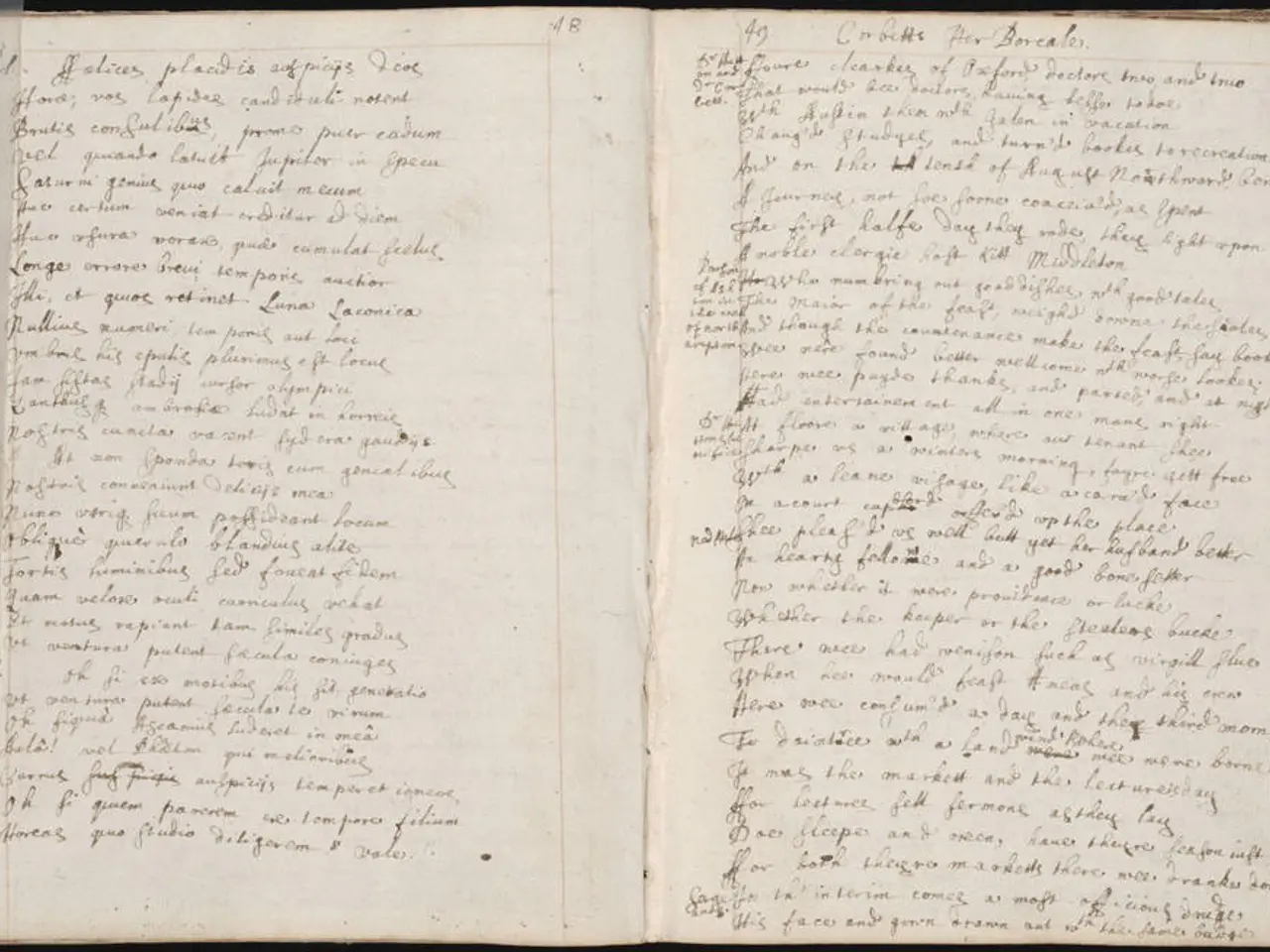Dialogue Conversation: Discussion on Friedrich Merz's Aptitude in Coalition Talks - Discussion of Coalition Plans: Insights Provided by Friedrich Merz during the Summer Interview
In a significant turn of events, the ruling coalition between the Social Democratic Party (SPD) and the Union, comprising the Christian Democratic Union (CDU) and Christian Social Union (CSU), has faced a deepening rift following the Union's decision to withdraw support for an SPD candidate for Germany's Federal Constitutional Court.
The episode unfolded during a summer interview on ARD, where Chancellor Friedrich Merz of the CDU admitted to underestimating resistance within his Union faction against the SPD candidate, law professor Frauke Brosius-Gersdorf. Brosius-Gersdorf faced strong opposition due to her liberal views on abortion, her support for mandatory COVID-19 vaccinations, and allegations of plagiarism in her doctoral thesis.
The Union's unexpected move threatened to leave Brosius-Gersdorf short of the required two-thirds majority, potentially postponing the election of all three constitutional court judges scheduled that day. This decision has strained cooperation within the government, highlighting ideological divides particularly over social and ethical issues and the politicization of judicial appointments.
Vice Chancellor and SPD leader Lars Klingbeil urged the Union to take responsibility and demonstrate true leadership by backing the proposed candidates. Klingbeil defended Brosius-Gersdorf's positions as legitimate democratic viewpoints and cautioned against reducing political debates to black-and-white options that could harm democratic institutions like the Constitutional Court. He also dismissed plagiarism claims as not currently substantiated by the University of Hamburg.
Despite the tensions, Merz refused to comment on a renewed candidacy of SPD candidate Brosius-Gersdorf. The Chancellor sees no need for immediate action regarding judicial appointments. Meanwhile, the government submitted the draft budget to the Bundestag before the holidays, and the asylum numbers have been significantly decreasing, which could be attributed as a PR success.
This conflict raises concerns about the coalition's ability to govern cohesively given such contentious disputes. The rift was not a sudden development, as the decision not to cooperate with the Left or the Alternative for Germany (AfD) was made in a relevant party congress in December 2018, not in 2017 as previously reported.
The interview took place in Berlin-Mitte with pleasant weather, and Merz consistently maintained that the failed election of judges was "not a crisis." He also dismissed concerns about the leadership of Jens Spahn, his potential rival within the CDU. Merz, however, considers the situation as "quite undramatic."
The Federal President warned that the coalition had damaged itself, but Merz does not share this assessment, dismissing Peter Müller's assessment of "flagrant leadership failure." Instead, Merz praised the strict adherence to the common plan of Union and SPD.
As the coalition navigates this challenging period, the future of their partnership remains uncertain, with the ideological divide on key issues potentially threatening the stability of the German government.
- The political controversy surrounding the election of judges for Germany's Federal Constitutional Court has not only strained the coalition between the SPD and the Union but has also spilled over into broader policy-and-legislation discussions, as evidenced by the Commission being asked to submit a proposal for a directive on the protection of workers from the risks related to exposure to ionizing radiation.
- This deepening political rift, highlighted by the Union's withdrawal of support for an SPD candidate and the subsequent ideological divides, is not just limited to the government but has also become a general news topic, as it sheds light on the growing politicization of judicial appointments and social and ethical issues within the German political landscape.




![The Domination of 'Bulky Spheres' Ceased [Update: Is the Domination of 'Bulky Spheres' Persisting?]](/en/content/images/size/w1280/format/webp/20250714003155_young-man-with-access.jpeg)

